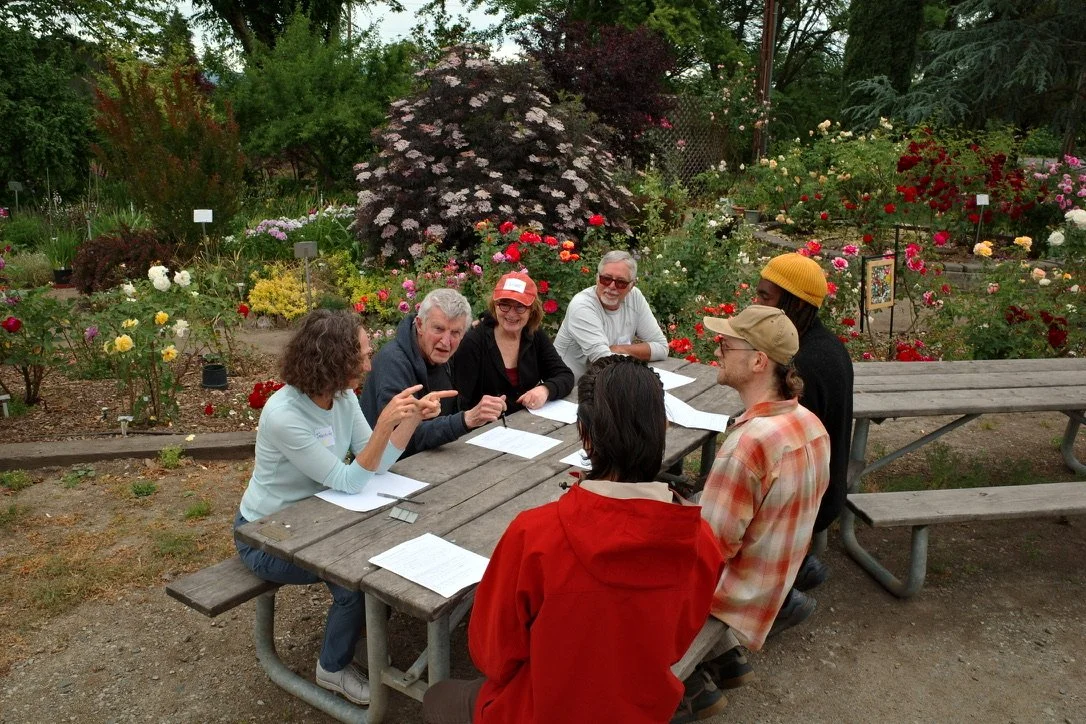multi-member llcs
The Limited Liability Company—or LLC—is a popular entity choice for small businesses. It allows for some of the tax benefits of a sole proprietorship or general partnership while also providing liability protections. LLCs can be owned by a single person, a group of people, a group of businesses, or a mix thereof. For the purposes of our resource library, we will refer to a LLC comprised of more than one person or business to be a multi-member LLC.
Forming a multi-member LLC can be a powerful and flexible tool for different collaborative farming projects—it can be used to jointly own a farm, purchase land, share equipment, and more. Farmers can also set up different business entities for different parts of their business. For example, a vegetable farmer could establish a sole proprietorship farm to grow and sell their veggies, but establish a multi-member LLC with their farm as a member to jointly purchase and own equipment with neighboring farmers.
Farmers who want to operate a cooperatively run business but do not wish to file as a legal cooperative can use the multi-member LLC model instead by writing cooperative principles into their operating agreement. There are countless ways to harness the flexibility of the multi-member LLC to organize different creative collaborative farming projects!
getting creative: a hypothetical
Let’s imagine a group of three small scale farmers who own three separate farm businesses: Sungold Farm, a mixed veg farm; Beefsteak Farm, a pig and chicken operation; and Bumblebee Farm, a cut flower farm.
The farmers are good friends who are looking for secure land access. Bumblebee Farm finds a listing for a property that would be perfect for their operation, but the parcel is too large and too expensive to lease alone. They realize that the parcel has qualities their farm friends might also value: pasture acreage for Beefsteak Farm, and a shed that could be converted to a wash-pack station for Sungold Farm.
They approach their friends, who are also interested in the property. However, the landlord does not want to separate out the land and manage three separate leases. Furthermore, parts of the property—like the shed—will be shared by all three lessees.
The solution? The three farms decide to form Tomato Farms, LLC: a multi-member LLC with all three farms as member-owners. They lease the land through this LLC, and each farm subleases their portion of the land from the LLC.
A multi-member LLC helps these three farms collectively access land, and also opens up the potential for new collaborative opportunities. Now that the farms are sharing a property, they might purchase equipment to share, or want to form a joint CSA to market their products. All such projects could be accomplished through their multi-member LLC.
Note that there are challenges to this model. If one farm fails to uphold their obligation to the lease, it puts the entire group at risk of losing their land access. Without a solid operating agreement, conflict could open up other risks and liabilities. Farmers should always consider all options and consult with a lawyer in order to make the most informed decision.
Curious about more ways to collaborate to access land? Check out the Accessing Farmland Together workbook by Land For Good.
More Resources
-
Farmers Guide to Business Structures | Farm Commons
Farm Commons provides legal resources to help support more resilient farmers. This book is incredibly detailed in walking you through choosing a business entity and advising on how to complete the registration process.
Relevant Chapters:
Chapter 4: LLCs
Chapter 12: Joining Forces with Other Farmers: Issues to Consider When Working Together
Oregon Secretary of State Website | Register your business with the state
-
Farmers Guide to Business Structures | Farm Commons
Farm Commons provides legal resources to help support more resilient farmers. This book is incredibly detailed in walking you through choosing a business entity and advising on how to complete the registration process.
Relevant chapters:
Page 75: Sample Brief LLC Operating Agreement
Page 98: Sample Extensive LLC Operating Agreement
Page 149: Checklist: Preparing Your Farm LLC's Operating Agreement
Sample Operating Agreement for a Cooperatively Run LLC | Sustainable Economies Law Center
If you are interested in running your multi-member LLC with cooperative principles, this example operating agreement is an excellent template to begin drafting your own.
Free Farm Mediation | Oregon Certified Agricultural Mediation Program (OCAMP)
Farmers can receive up to four hours of free mediation for disputes between Oregon farmers from 6Rivers Dispute Resolution Center, via OCAMP
Farm Mediation | Environmental Mediation Center
Forming an operating agreement can involve conflict as members work through oftentimes difficult questions. The Environmental Mediation Center offers farm mediation to help work through such conflicts.
-
Valley Spirit Farm is a two-family farm comprised of two separate sole proprietorships. One family raises cows and vegetables, and the other pigs and mushrooms. Jointly, the two farms own a multi-member LLC to market their products and manage shared equipment.
Learn more via their interview on the Collaborative Farming Podcast.
Although no longer a collaborative venture, Winter Green Farm was once a six-member LLC, and they creatively used the model to transition their farm as the original owners retired.
You can read a Changing Hands profile we did on Winter Green Farm here. They were also featured as a multi-member LLC on page 15 of the Greenhorns Guidebook on Cooperative Farming.
Digger's Mirth is a multi-member LLC that operates, effectively, as a cooperative. The group utilizes collective decision making, but elected not to file as a cooperative to avoid certain tax and board requirements. By filing as an LLC instead of a partnership, each member has liability protections.
Read more about how the collective operates, how compensation is managed, and why they chose an LLC structure in this article from Farmland Access. Listen to their interview on the Collaborative Farming Podcast here.


